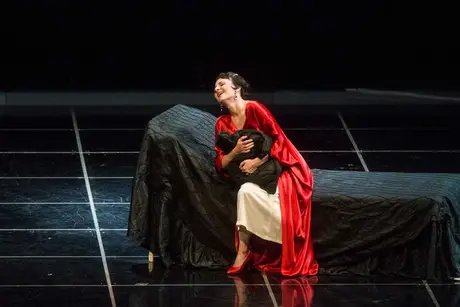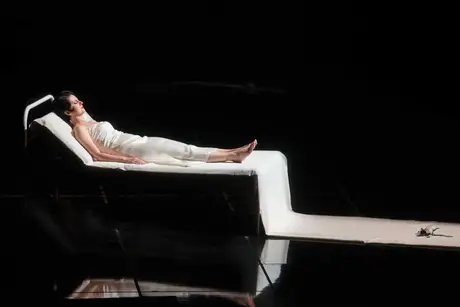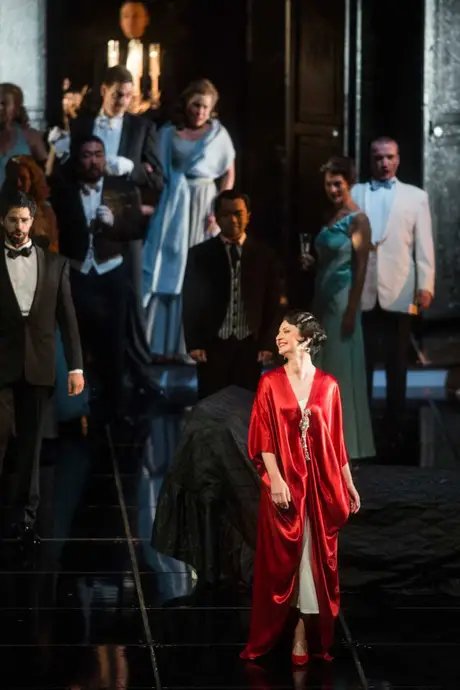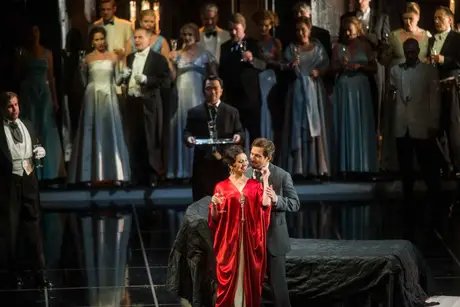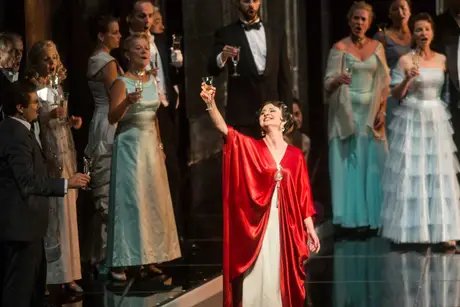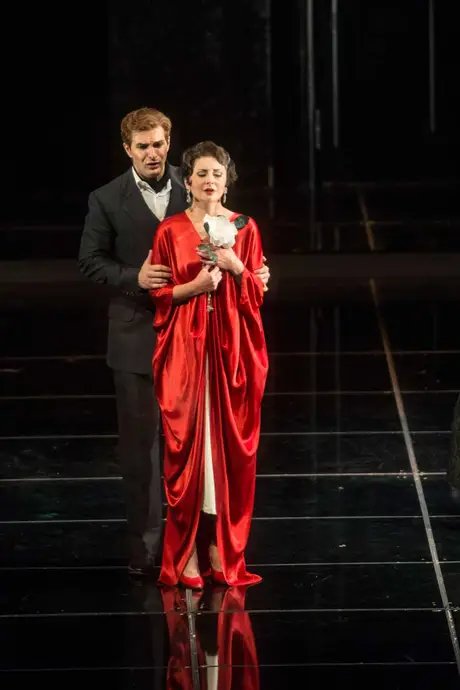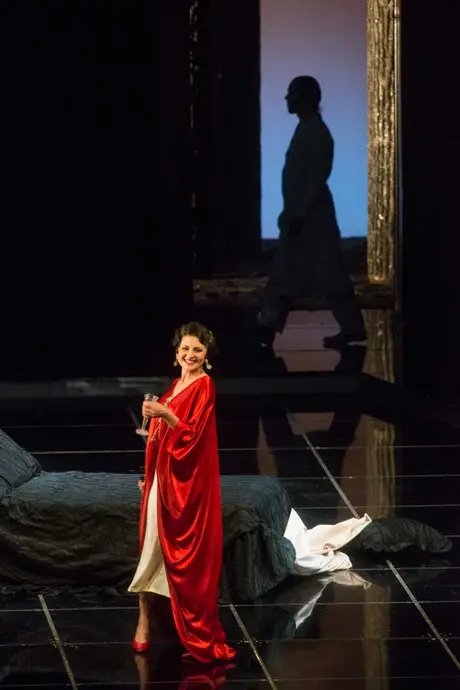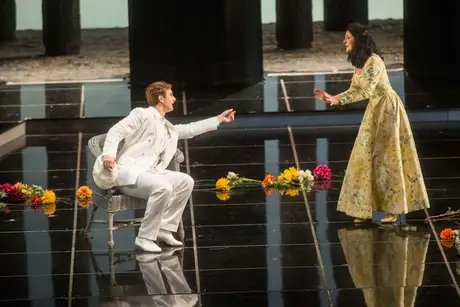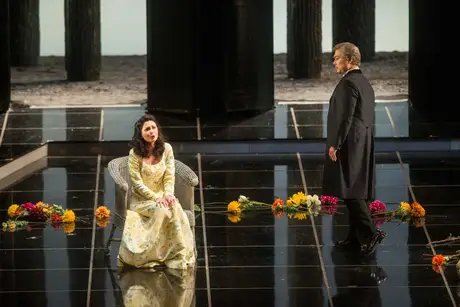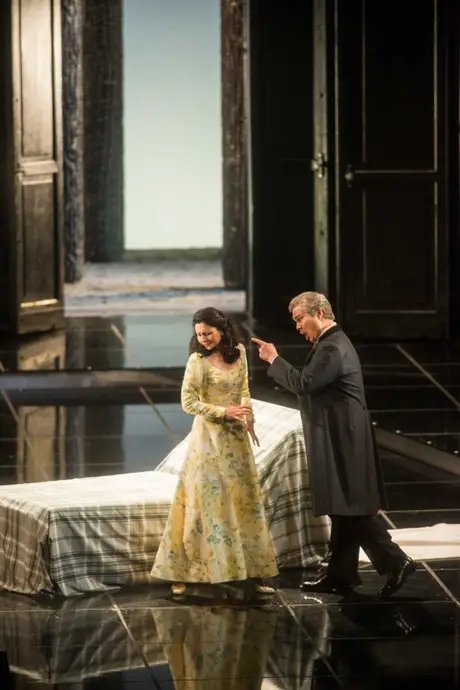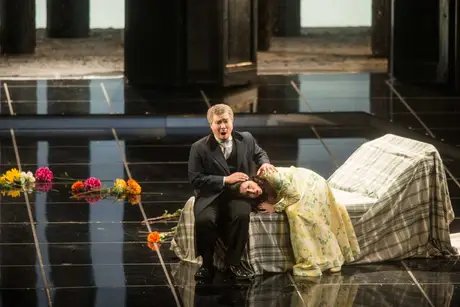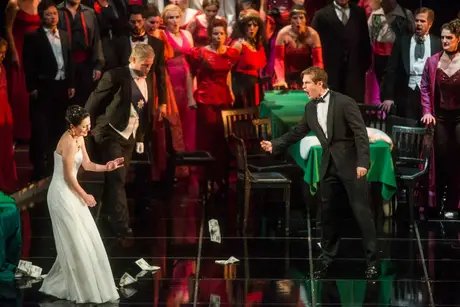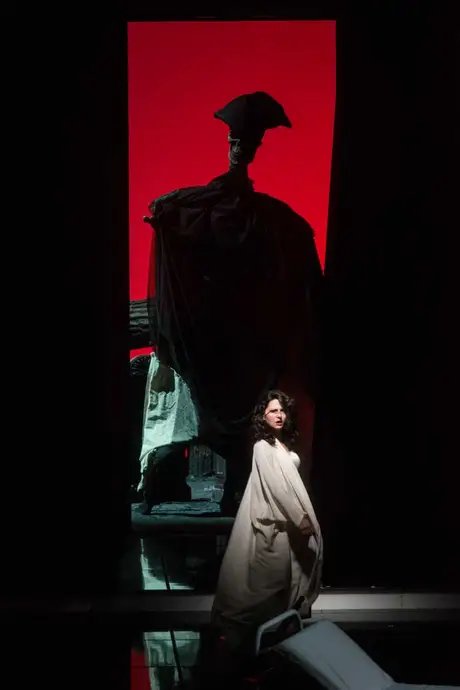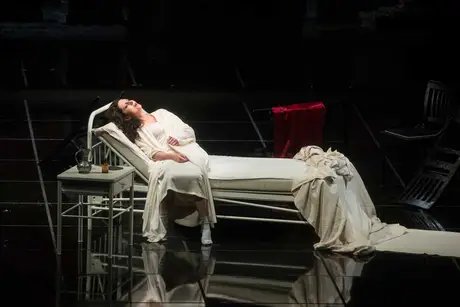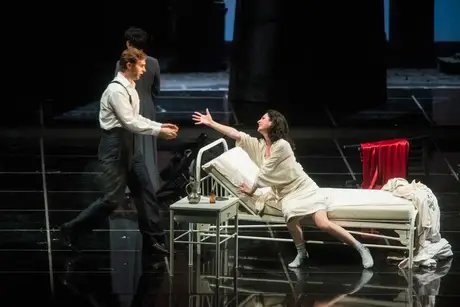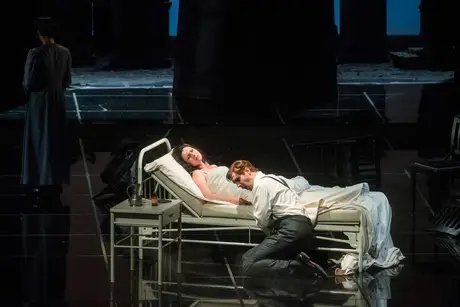
With La Traviata, Giuseppe Verdi brought one of the most moving operatic dramas of the 19th century to the stage – and with its unsparing portrayal of prostitution and illness, he dared to break a taboo that still resonates today.
Götz Friedrich's production at the Deutsche Oper Berlin elevates the tragic story of the Parisian courtesan Violetta Valéry to a timeless, oppressive level. An evening of opera with emotional power – profound, moving, and visually impressive.
Verdi's opera "La Traviata" – a story between passion and social condemnation
Violetta Valéry, a celebrated beauty of the Parisian demimonde, meets Alfredo Germont at a party – and falls in love. To give true love a chance, she turns her back on her luxurious life with the wealthy Baron Douphol and moves to the countryside with Alfredo. But the bourgeois world tolerates no deviations: Alfredo's father begs Violetta to leave his son so as not to damage the family's reputation. Desperate for self-sacrifice, she agrees—and thus sacrifices her own happiness.
When Alfredo learns of Violetta's supposed return to the Baron at a ball, he publicly humiliates her. Only in the face of her impending death does he learn the true reason for their separation. Too late—Violet dies of tuberculosis, forgives Alfredo, and gives him her last love.
The novel "The Lady of the Camellias"—a real-life tragedy
Verdi set Alexandre Dumas's "La Dame aux Camélias" to music, based on the life of the real-life courtesan Marie Duplessis, who died of consumption (tuberculosis) in 1847 at the age of just 23. In contrast to the literary source material, Verdi focuses entirely on the central conflict between Violetta, Alfredo, and his father – condensing the events into an intimate psychological drama about love, social pressure, and female self-sacrifice.
Götz Friedrich's production – a requiem for Violetta Valéry
The touching production by legendary director Götz Friedrich tells Violetta's story as a flashback: Already in the prologue, she lies on a white deathbed, the stage resembling an oversized tomb. The lavish parties and fleeting pleasures of Parisian society appear like shadows of bygone days. The set deliberately reduces the setting to the essentials – allowing the inner tragedy to erupt all the more powerfully. Sentimentality is avoided; instead, Friedrich consistently focuses on the psychological drama.
Cast & Musical Direction
- Conductors: Ivan Repušić / Francesco Lanzillotta
- Director: Götz Friedrich
Featuring:
- Adela Zaharia / Elbenita Kajtazi – Violetta
- Amitai Pati / Andrei Danilov – Alfredo
- Thomas Lehman / Dean Murphy – Giorgio Germont
2 hours 45 minutes / One interval
Sung in Italian with German and English surtitles
Additional information
- Melodramma in 3 acts
- Libretto by Francesco Maria Piave based on the novelle „La dame aux camélias“ by Alexandre Dumas fils
- First performed on 6. March, 1853 in Venice
- Premiered at the Deutsche Oper Berlin on 20. November, 1999
Pre-performance lecture (in German): 45 minutes prior to each performance
Participating artists
Ivan Repušić (Musikalische Leitung)
Götz Friedrich (Inszenierung)
Frank Philipp Schlößmann (Bühne)
Klaus Bruns (Kostüme)
Ulrich Niepel (Licht)
Thomas Richter (Chöre)
Klaus Beelitz (Choreographische Mitarbeit)
Adela Zaharia (Violetta Valéry)
Amitai Pati (Alfredo Germont)
Thomas Lehman (Giorgio Germont)
Arianna Manganello (Flora Bervoix)
Alexandra Oomens (Annina)
Kangyoon Shine Lee (Gaston)
Michael Bachtadze (Baron Douphol)
Navasard Hakobyan (Marquis D'Obigny)
Paul Minhyung Roh (Doktor Grenvil)
Michael Dimovski (Giuseppe)
Benjamin Dickerson (Ein Bote)
N. N. (Ein Diener bei Flora)
Chor der Deutschen Oper Berlin (Chöre)
Orchester der Deutschen Oper Berlin (Orchester)
